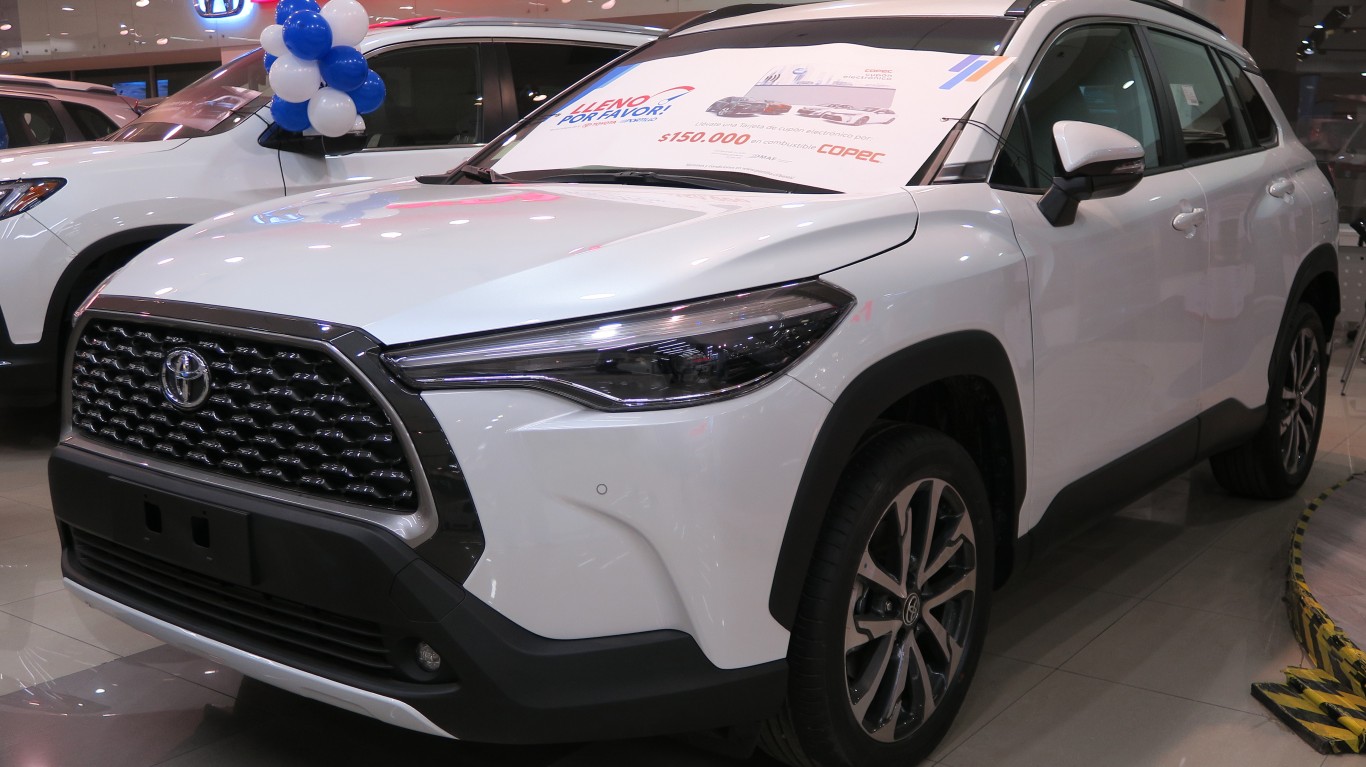
Much has been written about how Toyota Motor Corp. (NYSE: TM) did not jump into the electric vehicle (EV) industry the way Ford Motor Co. (NYSE: F) did, as the American company lost billions of dollars when sales of the EVs faltered. A year ago, Toyota was mocked for taking a huge risk because it did not chase Tesla Inc. (NASDAQ: TSLA). Instead, it built an extensive lineup of hybrids that sold exceptionally well. The world’s largest auto company by revenue delivered for investors simultaneously as its stock price surged compared to its primary competitors. (These 11 cars are still mostly made in America.)
In the past year, Toyota’s stock has increased 76%, Ford’s 8%, and Tesla’s 1%. The stock of German rival Volkswagen, the world’s second-largest car company by revenue, has dropped 14% in the same period. Toyota does lag Tesla in market cap, $329 billion to Tesla’s $558 billion. Investors continue to believe in the EV-only company. The market has not lost its taste for the risk that EV sales will return to double-digit growth year over year and stay that way well into the future.
A criticism leveled at Toyota is that the management does not care about the environment as much as it does investor issues. Hybrids emit higher carbon dioxide equivalents than EVs. However, these emissions figures are much better than those for gasoline-powered cars. From that standpoint, Toyota needed to go green faster. Among environmentalists, that criticism will continue.
But did Toyota’s hybrid-first strategy hurt the environment? Probably not. One manufacturer’s decision did not help or hurt global demand for EVs outside China. Consumers would have worried about range, number of charging stations, and charging times regardless of Toyota’s decision. The company simply gambled about consumer preferences and won.
Take Charge of Your Retirement In Just A Few Minutes (Sponsor)
Retirement planning doesn’t have to feel overwhelming. The key is finding expert guidance—and SmartAsset’s simple quiz makes it easier than ever for you to connect with a vetted financial advisor.
Here’s how it works:
- Answer a Few Simple Questions. Tell us a bit about your goals and preferences—it only takes a few minutes!
- Get Matched with Vetted Advisors Our smart tool matches you with up to three pre-screened, vetted advisors who serve your area and are held to a fiduciary standard to act in your best interests. Click here to begin
- Choose Your Fit Review their profiles, schedule an introductory call (or meet in person), and select the advisor who feel is right for you.
Why wait? Start building the retirement you’ve always dreamed of. Click here to get started today!
Thank you for reading! Have some feedback for us?
Contact the 24/7 Wall St. editorial team.




